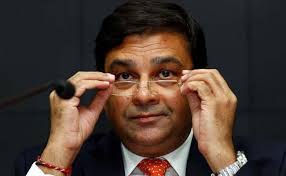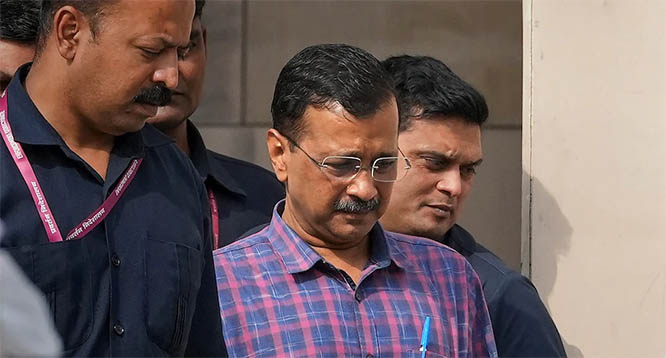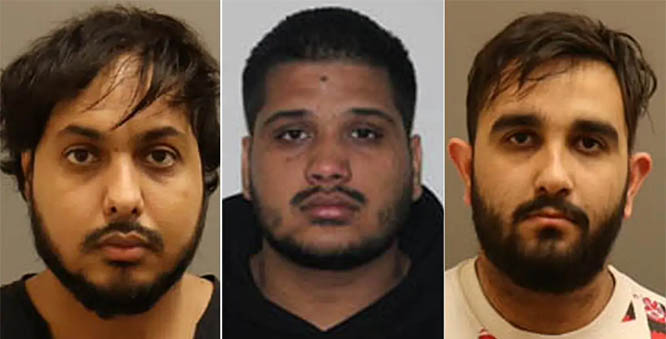Mumbai, Nov 27: Breaking his silence over the demonetisation issue, RBI Governor Urjit Patel today said the central bank is monitoring the situation on a daily basis and taking all necessary actions to "ease the genuine pain of citizens" with a clear intent to normalise the things as early as possible.

In an exclusive interview to PTI, Patel said the situation arising out of the decision to withdraw Rs 500/1,000 notes is being monitored on a daily basis and the printing presses have started to rebalance the production of new notes towards Rs 100 and Rs 500 bills.
He also urged the people to start using cash substitutes like debit cards and digital wallets, saying it will make transactions cheaper and easier and in the long term, it will help India "leapfrog into a less cash-use economy at par with more developed nations."
"We are also urging banks to make a big push with PoS (Point of Sale) machines with traders so that debit card use becomes more prevalent," he said.
Giving details of the steps being taken by RBI, he said, "Both RBI and government have been getting the printing presses to work at capacity to get the new notes available to meet demand.
"The RBI is interacting with the banks every day. They are telling us that the situation is gradually easing. The queues in branches and ATMs are shorter and the markets are starting to function, and there are no reported shortages of daily items of consumption.
"Also, about 40-50,000 people were deployed to refit the ATMs. Currency is available and banks are working in a mission mode to lift currency and take them to their branches and ATMs. The staff members of all banks have worked very hard, and we all owe them our gratitude," Patel said.
"Having said that, it is important to regularly review the situation, and taking the required decisions to ease the genuine pain of citizens who are honest and who have been hurt. There are no precedents on this subject at this scale and we have to be reactive to the situation.
"People have asked why the new currency introduced was different in size and thickness from the old. This is because the new currency has been designed to make it hard to counterfeit. When you are going to make a change of this magnitude, you need to get the best standards in place," Patel said.
This is the first-ever interview as RBI Governor by Patel, who is known to keep a low profile.
Asked why it was necessary to have undertaken demonetisation, the Governor said the Prime Minister in his address to the nation explained why the withdrawal of legal tender status of Rs 1,000 and Rs 500 notes was required.
"In his speech, he explained the reasons why this was important. He had given a commitment to the people of India that he would clamp down on black money to bring in much needed transparency and accountability and eradicate counterfeiting.
"A number of steps were taken around this, first by pushing Jan Dhan accounts, an income tax amnesty scheme and the push to get GST passed. This is part of the measures to get people to pay tax and hence expand the tax base.
"People were holding high denomination notes to keep tax unaccounted for money. Some sectors like real estate were using cash to avoid tax. It also strikes at counterfeit currency and pushes businesses and people to go cashless which greatly increases convenience. Towards the last, banks have waived debit card charges," he said.
On why there have been long queues and a reduction in trade and business, Patel said, "This is a once in a lifetime event. It is very rare to remove 86 per cent of the currency in circulation in one go. The logistics of such an operation are mammoth.
"And yet for withdrawal of legal tender status to be effective, complete secrecy was required. So it is difficult to get all banks ready and fully prepared in 24 hours for a big step like this. Obviously this has caused some dislocation. That is why we request support from all Indians for the larger cause of fighting tax evasion and the black economy."
To a question on when he expects the situation to settle, the economist-turned-central banker said, "The bankers are saying the situation is getting better and in the metros things are stabilising but the remote locations are still feeling some pain.
"Liquidity in the banking system has increased and so credit should be becoming more easily available. The intent is to normalise as soon as possible."
On the announcement about incremental CRR yesterday, Patel said, "This was done because of the large increase in deposits of banks on account of the return of Rs 1,000 and Rs 500 notes.
"This has led to large excess liquidity in the system. To absorb this liquidity the incremental CRR has had to be used on a purely temporary basis. While the RBI has a significant stock of government securities available, we felt that if the increase in deposits continues we may fall short, hence the decision. Once the government issues adequate quantum of MSS bonds, which they have promised to, we will immediately review the incremental CRR."








Comments
Even before you joined as the governor, ua signature was done before hand.....HOW?
We miss Raguramrajan!...
We can tolerate pain for our country...what about life of poor people? who will take death of poor people?
YOu Mean Ambani Adani
Add new comment